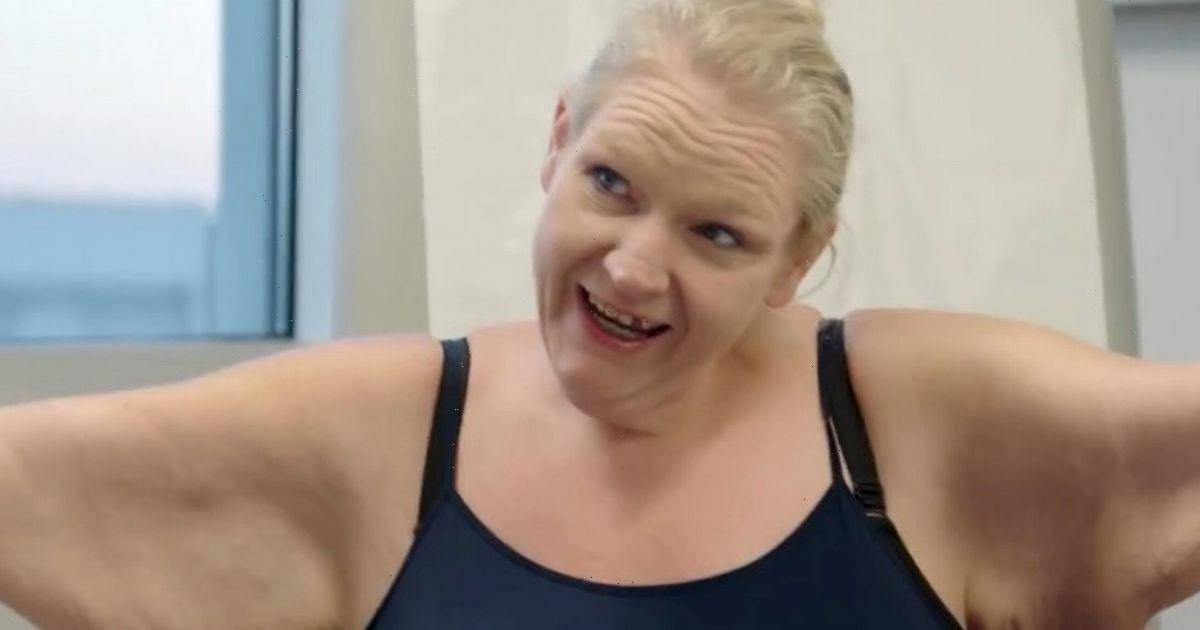Film and television producers are, at the core, accomplished problem-solvers on myriad levels. For Stephanie Allain and Donald De Line, who currently share the presidency of the Producers Guild of America, the prevailing problems for its membership are downright existential.
“The biggest refrain is ‘How can we get health insurance?’” says Allain, whose producing projects have included everything from “Boyz N the Hood” and “Muppets in Space” to “Dear White People” and the Academy Awards telecast.
“And ‘How do you make a living as a producer?’” adds De Line, the former Touchstone Films exec responsible for mega-hits such as “Pretty Woman” and “Armageddon,” and whose prodigious producorial output includes “The Italian Job,” “Ready Player One” and a forthcoming Billy the Kid limited series.
De Line points out that the Producers Guild is not a union, like many of its professional counterparts for directors and screenwriters, but a trade organization, which has resulted in many years of work to overcome challenges in achieving healthcare goals for its membership, many of whom do qualify for Motion Picture Industry insurance on certain productions.
“Stephanie and I want to make sure that … if [insurance] is not available, we get some kind of line item in every budget that would go toward covering producers’ healthcare costs to some degree, because we are the only ones on a call sheet who don’t have healthcare coverage,” De Line says.
Despite serving as the presumptive topline moneymaking role on productions, “producers for a while have felt the sting of doing what we love, but not being paid to develop things, relying on fees, the backend’s shrinking,” Allain says. “We’re the linebackers, we’re taking all the blows. But now is a time where everybody is realizing that to really keep this profession alive and exciting and to lure young people in, we’ve got to be valued and compensated in the same way that other professionals are in our business.”
To address backend conundrums, the guild is assembling a task force to examine recent, dramatic changes in producer deals due to streaming-led business models. “In streaming, you would get a buyout upfront, where you used to get a backend participation, and they weren’t getting advertising dollar revenue,” says De Line. “Now a lot of streamers have two versions of the service, and some have ad-supported subscriptions, and the producers are not seeing that backend.”
“We should be a part of [it] because we are oftentimes the generator of the idea,” adds Allain. “We buy the IP, we work for years sometimes to get this thing on its feet, and we’re only paid once prep starts. That could be a year, two years, five years, 10 years of work where we don’t get anything.
“It used to be you could put all that energy and dreaming and hope and hard work into something, and you bet on yourself, and the outcome is if it wins, you win too: you get a piece of that movie,” she adds. “But that’s pretty much gone.”
“It’s also hit the feature side too,” says De Line. “With budget-shrinking and the industry being in such a state of flux, our producer fees have always traditionally been attacked up front to get to a budget number. Now we’re seeing it on the backend, too. Studios got rid, for the most part, of first-dollar gross, so it’s just harder and harder for producers to make a living.”
Now the PGA is taking an active hand in educating its membership on deal trends it sees emerging across the industry, says De Line, to say in essence “‘Here are the things you might want to discuss with your representative to make sure you could fight for in your deal, so you get some kind of profit participation, so you’re not cut too much on the upfront.’ Because we’re just not protected in that regard.”
The co-presidents also want to help the membership better tap the exciting and increasingly expensive landscape of potential buyers across film and television.
Content formats are significantly more dynamic as well, notes De Line. “It used to be very siloed. You were either film or you were television. Very few people did both. Now it’s so fluid and it’s exciting because something can be a six-hour limited series, or it can be a movie. … And people are jumping those fences all the time…and it really expands our world, in terms of being able to tell stories.”
The PGA continues to develop and expand crucial resources for its membership including evaluating hundreds of productions to fairly and accurately determine producer credits, offer sexual-harassment education and legal advice, and provide longstanding, pioneering guidance on green production and sustainability standards. Emerging programs including the Google-sponsored PGA Create, an immersive mentorship initiative for new and mid-career creative producers, have provided valuable on-ramps and diverse, supportive affinity communities for members — 2,000 participants over the past 18 months, De Line says, “literally 25% of our national membership.”
“It’s just so exciting to see the new crop of producers coming up,” says Allain. “And that’s really what the guild does so well, which is to provide advocacy and education for our constituency. … We have the longest-running Women’s Network Initiative. Of course, we have LGBTQ+, we have Asian American, we have producers of color. Because there’s so many ways to express yourself and to be, and the guild has done a really good job in providing opportunities for these emerging producers to be paired
with mentors.”
“They really are finding some kind of real value in networking with their peers and really feeling safe in an environment with people who share similar backgrounds and face similar issues,” says De Line.
Allain says the current crop of nominees for the 34th PGA Awards on Feb. 25 also demonstrate that Hollywood success is not limited to a seeming chokehold of pre-established IP. “Just the breadth of movies — I feel like some years it’s all indie movies, some years it’s big. We have both … everything from ‘Top Gun’ to ‘The Whale.’ I mean, that’s giving kudos to producers on all those different levels.” Following a painful period of both growth and contraction in the industry, De Line says he believes that the PGA can help its membership find exciting and lucrative new pathways.
“Everyone in this business has felt beaten down and felt the effects of the last few years,” he says. “We just want to really rally our ranks and the producing community and support each other and make each other feel that sense of comradery and support and dignity in our profession.”
Which brings it back to the problem-solving acumen of the producing brethren. “I have a saying: everything works out in the end. If it’s not worked out, it’s not the end,’” Allain says. “That’s how we get through the day. … We are so blessed, being able to do what we do. We wake up every day excited and happy and working with creative people and creating content that changes culture, that changes the world, that changes hearts and minds.”
Read More About:
Source: Read Full Article


